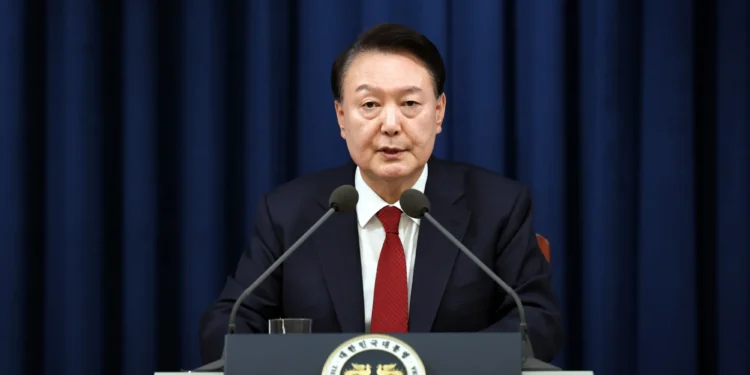Lagatar24 Desk
Seoul: South Korean President Yoon Suk Yeol lifted martial law just hours after its imposition, following a unanimous vote by lawmakers and widespread protests. This unprecedented move marked the first declaration of martial law in the nation in over four decades, creating political turmoil and raising questions about Yoon’s leadership.
In a late-night emergency address, Yoon declared martial law, accusing the opposition of engaging in “anti-state activities” that threatened democracy. The order, issued by martial law commander General Park An-su, banned political activities, strikes, and gatherings deemed disruptive, while also bringing media under military control. Security forces sealed the National Assembly, and troops briefly occupied the building to prevent lawmakers from entering. However, 190 legislators managed to convene and unanimously voted to reject the declaration.
Yoon, facing immense pressure, withdrew the order early Wednesday morning, stating that the state of emergency had been lifted and military personnel withdrawn. This abrupt reversal came amid accusations from the opposition, which called the move an act of “insurrection” and demanded the President’s resignation. Major labor unions announced an indefinite strike in protest, and even Yoon’s own People Power Party criticized the decision, calling it “tragic” and demanding accountability.
International reactions underscored the gravity of the situation. The United States expressed relief at Yoon’s reversal, while Britain and Germany closely monitored the developments. China advised its citizens in South Korea to exercise caution, and Russia described the episode as “alarming.”
Yoon defended his actions as necessary to safeguard democracy and address alleged threats posed by North Korea, though critics argued the move stemmed from frustration over a domestic budget row with the opposition. Political analysts described the declaration as a desperate attempt to reassert authority amid declining public support.
The fallout from the martial law debacle has placed Yoon’s presidency under intense scrutiny, with mounting calls for his resignation. As South Korea navigates this political crisis, the nation’s democratic institutions face a critical test of resilience.







